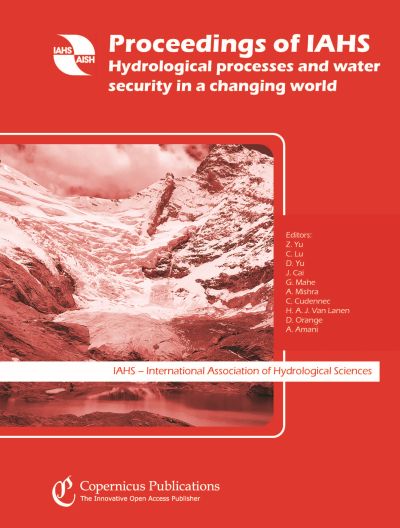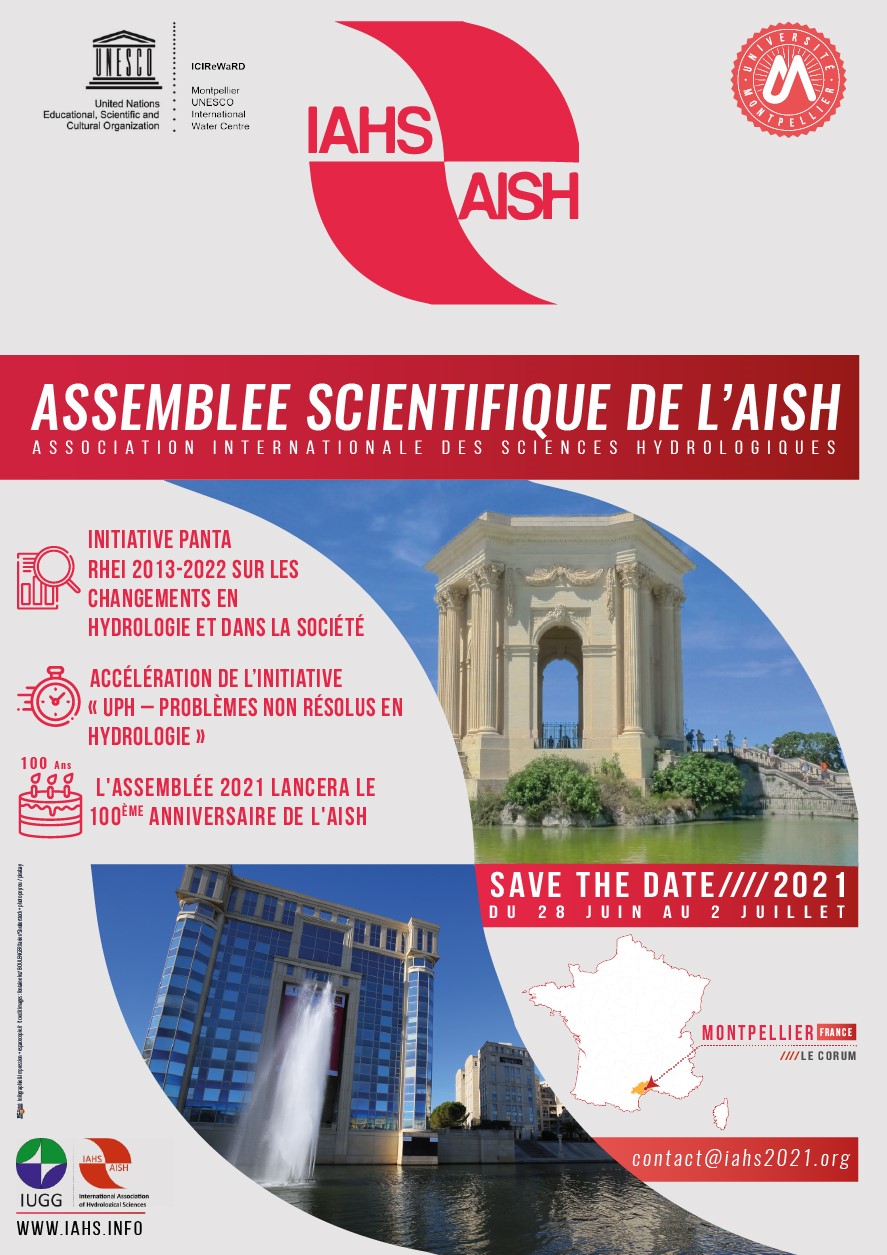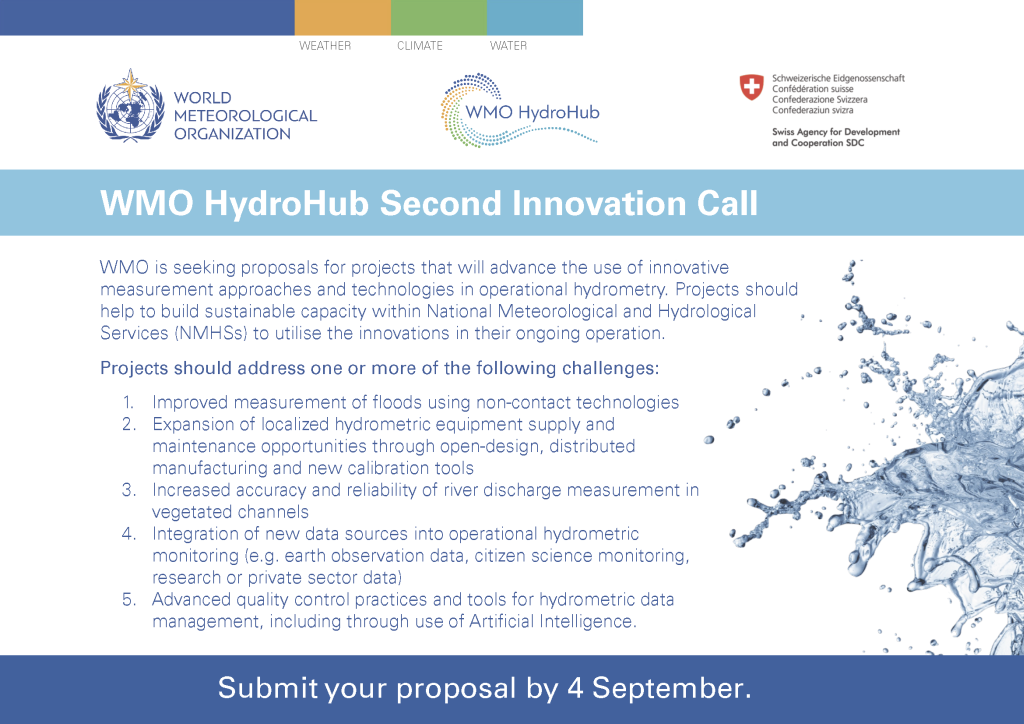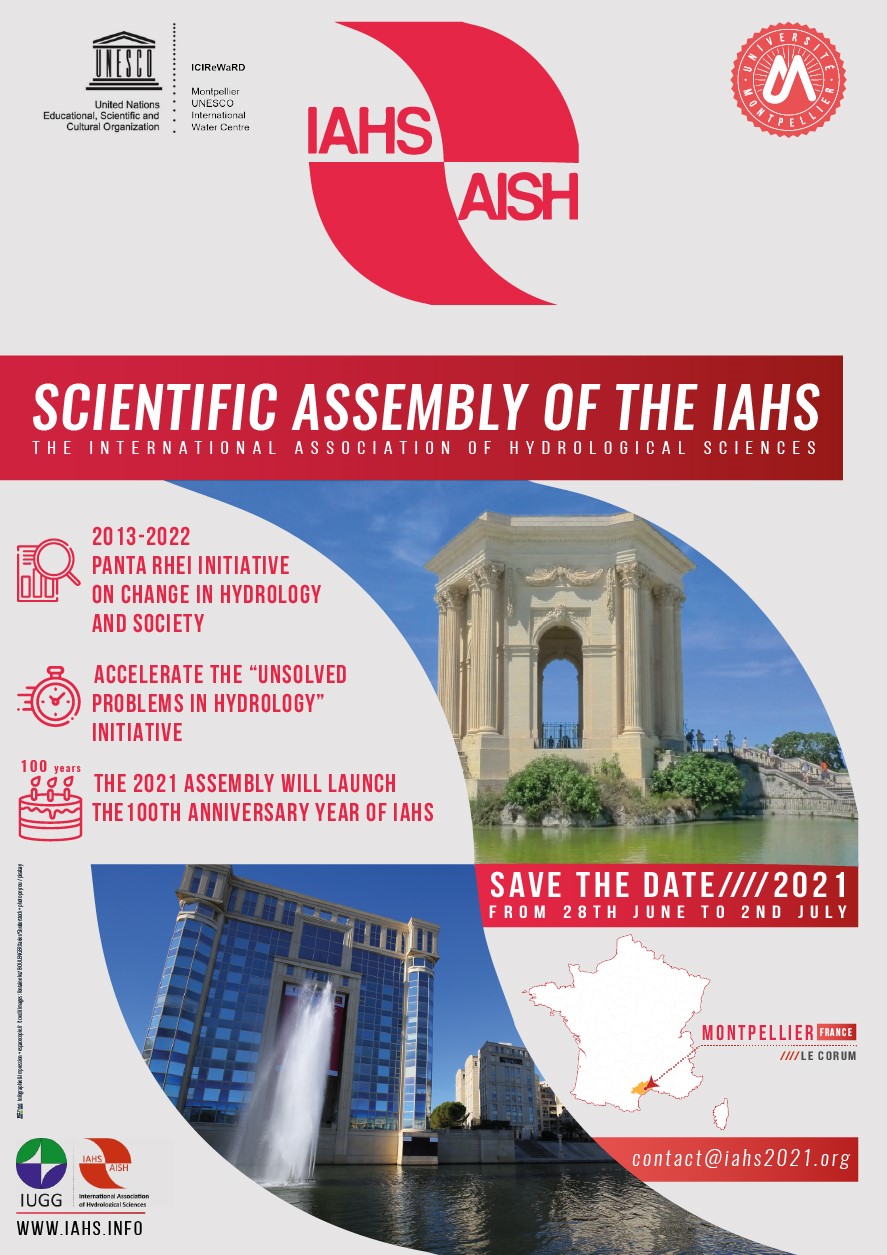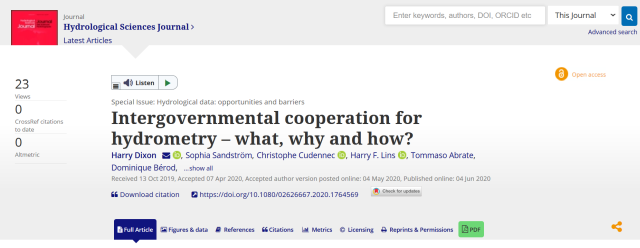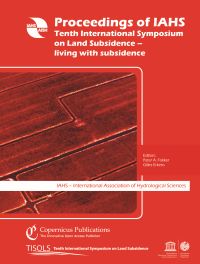IAHS News
Online Seminar: Pollutant and Sediment Mobility in River Systems: Monitoring Studies to Identify Human Impacts
The School for Young Scientists "Pollutant and sediment mobility in river systems: monitoring studies to identify human impacts" will be held online on November 25-27, 2020. Join the broadcast and learn about environmental and human impacts on river channels and waters quality from various continents and river systems.
The program includes lectures by leading experts from Russia, USA, Germany, Great Britain, France, Belgium, Netherlands and Brazil on the problems of sediment and water quality and geochemistry of river systems:
- Adrian Collins, President of IAHS ICCE (Rothamsted Research, Okehampton, Devon, United Kingdom)
- Caroline Clason (University of Plymouth, United Kingdom)
- Sagy Cohen (Department of Geography, University of Alabama, Tuscaloosa, Alabama, United States)
- Bjoern Helm (Dresden University of Technology, Dresden, Germany)
- Jeff Nittrouer (Department Earth, Environmental and Planetary Sciences, Rice University, Houston, United States)
- Nikolay Kasimov (Lomonosov Moscow State University, Russia)
- Edgardo Latrubesse (Federal University of Goiás-Brazil, Brazil)
- Martina Flörke (Institute of Engineering Hydrology and Water Resources Management, Ruhr University Bochum, Bochum, Germany)
- Matthias Vanmaercke (Liège University, Belgium)
- Salomon Kroonenberg (Delft University of Technology, Delft, Netherlands)
- Daniel Karthe (German-Mongolian Institute for Resources and Technology, Germany)
The working language of the School is English.
Participation is free of charge based upon registration by November 24, 2020 via the website https://megapolis2020.ru/. A link to the broadcast (zoom and youtube interface) will be sent to registered participants.
The School for Young Scientists dedicated to the study of river systems is held by the Faculty of Geography of Moscow State University with the financial support of the Russian Science Foundation (grant No. 19-77-30004). Co-organizers - Russian Geographical Society, International Commission on Continental Erosion of the International Association of Hydrological Sciences (ICCE - IAHS).
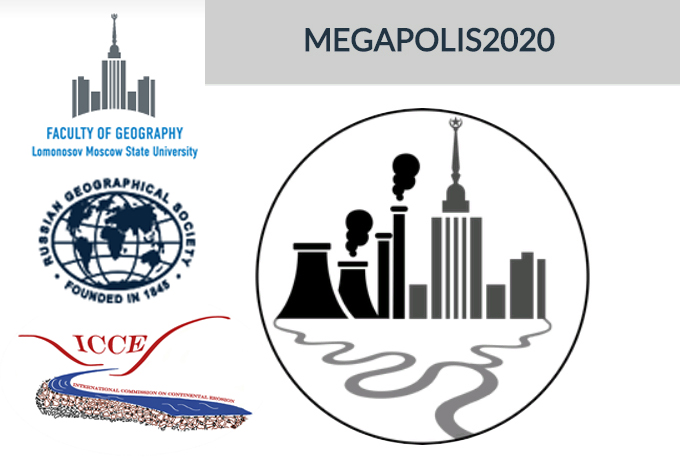
International Hydrology Prize – Call for nominations before 31st December 2020
The International Hydrology Prize is awarded annually by IAHS, with UNESCO and WMO, to two people who have made an outstanding contribution to hydrological science. More information, including previous awards, is available at
Nominations for the Prize are made by National Committees to IAHS, National Committees to the UNESCO-IHP or National Hydrological Advisors to the WMO, and forwarded to the Secretary General of IAHS for consideration by the Nomination Committee. The Committee consists of the President and a Vice-President of IAHS, as well as representatives from UNESCO and WMO.
Two medals are awarded under the International Hydrology Prize: the Dooge medal and the Volker medal. Both medals are intended to distinguish outstanding achievements by hydrological scientists but with a different focus. The Dooge medal is aimed at fundamental contributions to the science of hydrology, whereas the Volker medal is aimed at outstanding applications of hydrological science for the benefit of society at large.
The following applies to both the Dooge and Volker medals:- The International Hydrology Prize shall be awarded to persons who have made outstanding contributions to hydrology such as confers on the candidate universal recognition of his or her international stature.
- The contribution should have an identifiable international dimension extending beyond both the country of normal work and the specific field of interest of the candidate.
- The medals may be awarded to hydrologists of long international standing or to younger but active hydrologists who exhibit qualities of international leadership in the science or practice of hydrology.
- An active involvement in the work of IAHS and other international organisations in the field of hydrology should be counted as an advantage.
Specific considerations for the Dooge medal:
- The Dooge medal is particularly intended for hydrologists who have demonstrated scientific excellence, and have made fundamental contributions to the science of hydrology as evidenced by publications in the international scientific literature and other evidence of high standard.
- Preference should be given to candidates who have recently exhibited outstanding international leadership in the science of hydrology.
Specific considerations for the Volker medal:
- The Volker medal is dedicated for hydrologists who have applied their research and hydrological expertise to the benefit of society, addressing issues of public interest and development.
- Applications of hydrology to the benefit of developing countries would count as an advantage.
- Preference should be given to candidates who have contributed through both scientific and practical work, and who have made outstanding contributions to the Hydrology community as demonstrated by active involvement in the work of IAHS or other international hydrological associations.
Nomination format and procedure
Nominations should be received by the Secretary General of IAHS no later than 31 December 2020 – Christophe Cudennec at cudennec@agrocampus-ouest.fr – and consist of:
- a (max. 2, pages A4 format) nomination letter signed by a National Representative to IAHS, the President of a national committee of UNESCO-IHP, or a National Hydrological Advisor to the WMO, with one sentence citation (max. 200 characters), and stating why the nominee is the most qualified person to receive the Volker or Dooge medal, paying attention to the medal's dedication specified above;
- the nominee’s CV (max. 3 pages, A4 format) with an emphasis on the contribution to hydrological science and international scientific cooperation, providing clear information on the main criteria used for the evaluation and the specific considerations mentioned above.
- a list of the major scientific publications (max. 2 pages, A4 format).
Nominations are expected from the world diversity, and equally for female and male candidates.
Evaluation criteria
a) Outstanding contributions to hydrology evidenced by universal recognition of his or her international stature.
b) Identifiable contributions with international dimensions extending beyond both the country of normal work and the specific field of interest of the candidate.
c) For senior candidates prove of Hydrologists activities of long international standing, or for younger candidates, prove of being active hydrologists with qualities of international leadership in the science or practice of hydrology.
d) Active involvement in the work of IAHS and other international organizations in the field of hydrology is counted as an advantage.
e) Application of the hydrological research performed and the use of his/her expertise to the benefit of society and addressing issues of public interest and development.
f) Applications of hydrology to the benefit of developing countries counts as an advantage.
‘Hydrological processes and water security in a changing world’ from the 8th Global UNESCO FRIEND Water Conference is now available as PIAHS Volume 383
The papers from the 8th Global UNESCO FRIEND Water Conference ‘Hydrological Processes and Water Security in a Changing World’ are now available open access as PIAHS Volume 383.
https://piahs.copernicus.org/articles/383/index.html
The 8th Global FRIEND conference was co-organized by UNESCO and Government of China, with the focus on the theme of hydrological processes and water security in a changing world, under which eight thematic topics were discussed during the conference:
(1) hydrological observations under the changing environment and scarcity;
(2) river regimes and hydrological extremes under the changing environment;
(3) simulation and prediction of surface water and groundwater processes under the impact of human activities;
(4) urban hydrology and sponge city;
(5) multi-objective water resources allocation and operation;
(6) integrated watershed management including eco-hydrology and socio-hydrology;
(7) water quality and sediment transport; and
(8) river health and ecological baseflow under changing environment.
The conference explored how society, water systems and the environment interact under changing conditions. It highlighted the advance in hydrological science and innovation in water management, as well as the solutions to improve this relationship, particularly in view of contributing to the 2030 Agenda and the Paris Agreement. For the first time the two IHP programs FRIEND and Ecohydrology jointly organized a side event about the importance to bring ecological solutions to hydrological problems.
Save the date reminder: IAHS 2021 Scientific Assembly
The next Scientific Assembly of the International Association of Hydrological Sciences (IAHS 2021) will take place in Montpellier, France from 28 June to 2 July 2021.
This important biennial event will provide an opportunity to communicate, exchange and project on all major topics in the hydrological sciences within the framework of sessions organized by all IAHS Commissions and Working Groups.
IAHS 2021 will have three major focuses:
· Panta Rhei initiative (2013-2022) on change in hydrology and society
· UPH initiative, "Unsolved Problems in Hydrology"
· Launch of the 100th anniversary year of IAHS
This event will be accompanied throughout this week by many other "water-related" events for scientists, the general public and schoolchildren.
WMO HydroHub Second Innovation Call
The World Meteorological Organization is seeking proposals for projects that will advance the use of innovative measurement approaches and technologies in operational hydrometry.
IAHS is a strong partner of the WMO HydroHub initiative.
Website: https://hydrohub.wmo.int/en/news-events/wmo-hydrohub-second-innovation-call
Save the date: IAHS 2021 Scientific Assembly
The next Scientific Assembly of the International Association of Hydrological Sciences (IAHS 2021) will take place in Montpellier, France from 28 June to 2 July 2021.
This important biennial event will provide an opportunity to communicate, exchange and project on all major topics in the hydrological sciences within the framework of sessions organized by all IAHS Commissions and Working Groups.
IAHS 2021 will have three major focuses:
· Panta Rhei initiative (2013-2022) on change in hydrology and society
· UPH initiative, "Unsolved Problems in Hydrology"
· Launch of the 100th anniversary year of IAHS
This event will be accompanied throughout this week by many other "water-related" events for scientists, the general public and schoolchildren.
More information will follow soon.
Intergovernmental cooperation for hydrometry – what, why and how?
IAHS wish to highlight a new paper in the HSJ Special Issue on Hydrological data: opportunities and barriers which will be of interest to the members active in hydrometry across the world. The open access paper details the WMO mechanisms on hydrometry and illustrates the strong inputs IAHS provides as a partner to WMO activities in the field of hydrology.
Intergovernmental cooperation for hydrometry – what, why and how?
Harry Dixon, Sophia Sandström, Christophe Cudennec, Harry F. Lins, Tommaso Abrate, Dominique Bérod, Igor Chernov, Nirina Ravalitera, Daniel Sighomnou & Florian Teichert
https://www.tandfonline.com/doi/full/10.1080/02626667.2020.1764569
Two thirds of hydrological observation networks in developing countries are reported to be in poor or declining condition. At the same time innovation in sensor technologies and data processing are presenting opportunities for enhancing observation networks that are not being realized. The WMO HydroHub was launched in 2016 to transform assistance to operational water monitoring agencies around the world. If successful, the initiative will increase the amount of hydrometric data available to researchers, catchment managers and water policy makers. To those unfamiliar with UN organizations, however, the nature of such initiatives, the reasoning behind the decisions taken to establish them and the mechanisms by which they try to deliver benefits for society, can be opaque. This paper adopts a novel dialogue-style format to explore the set-up of the WMO HydroHub and build awareness amongst those who ultimately may benefit from its approaches.
This paper is just one example of the firm partnership between the IAHS and the Commission of Hydrology of WMO for over 50 years which ensures a link with the latest developments in the hydrological sciences. Together with UNESCO, IAHS and WMO award the annual International Hydrology Prize medals to two people who have made an outstanding contribution to hydrological science.
‘TISOLS: the Tenth International Symposium On Land Subsidence – living with subsidence’ PIAHS Volume 382 is now available
The papers from the Tenth International Symposium on Land Subsidence due to be held in Delft, the Netherlands in April 2020 are now available open access as PIAHS Volume 382.
Facilitating scientists in exchanging ideas and sharing research results and inspiring stories has always been the aim of the International Symposia on Land Subsidence. Organized by a local organizing committee under the auspices of the UNESCO International Hydrological Programme (IHP) and the UNESCO Land Subsidence International Initiative, already nine successful symposia have been held since the first in Tokyo (Japan) in 1969. Contributions to each International Symposium were published as full papers by the IAHS, thereby creating an impressive collection of papers on land subsidence, freely available and accessible.
Scientists play an important role in providing the data, information, knowledge and tools to allow for well-founded decision making. TISOLS will bring together international experts from around the world to share the latest research and insights on natural and anthropogenically induced land-level lowering. A platform is provided to share our understanding of land subsidence, reliable data, and innovative techniques. Only an integrated effort will facilitate targeted strategies and solutions for long-term sustainable living conditions in subsiding areas. TISOLS takes on the challenge of linking geodetical, hydrological, geotechnical and geological knowledge to policy and socially acceptable solutions. To foster the link between the natural and social sciences and between science and society, five thematic sessions were created: (i) measuring and monitoring land subsidence, (ii) understanding land subsidence, (iii) modelling of land subsidence, (iv) impacts of land subsidence, (v) land subsidence coping strategies. The same themes have been used as chapters in the present PIAHS.
In the winter of 2020, the world has witnessed the pandemic outbreak of COVID-19 or the coronavirus. Quickly it became clear that international travelling was considerably restricted and in the following weeks, large-scale meetings were completely banned. TISOLS 2020, to be held from 20–24 April 2020, had to be postponed to 2021. The new date for TISOLS is 17–21 May 2021, hoping that by then the situation has improved enough to be able to organize a great meeting.
While TISOLS was postponed just weeks before the original date, the Proceedings had almost been finished. It was decided to pursue the publication as planned to share the exciting research results and to do justice to all the work performed. The Proceedings contain a record of 136 papers of high quality from all over the world. The contribution to all five themes, including the themes focusing more on social sciences, is large. They are all essential to deal with land subsidence and we are grateful that we managed to link them here. We hope that this volume of papers will furnish inspiration for land subsidence research and policy formulation around the world, and we look forward to sharing the presented research results of these Proceedings in 2021!
2020 International Hydrology Prize medals
The 2020 recipients of the IAHS-UNESCO-WMO International Hydrology Prize are:
Nominations for the annual Prize are made by National Committees to IAHS, National Committees to the UNESCO-IHP or National Hydrological Advisors to the WMO, and forwarded to the Secretary General of IAHS for consideration by the Nomination Committee. The Committee consists of the President and a Vice-President of IAHS and representatives of UNESCO and WMO.
As of 2014, two medals are awarded under the International Hydrology Prize: the Dooge medal and the Volker medal. Both medals are intended to distinguish outstanding achievements by hydrological scientists but with a different focus. The Dooge medal is aimed at fundamental contributions to the science of hydrology, whereas the Volker medal is aimed at outstanding applications of hydrological science for the benefit of society at large.
https://iahs.info/About-IAHS/Competition--Events/International-Hydrology-Prize.do
Our warmest congratulations go to both recipients.
2020 SYSTA Awardees
The IAHS Sivapalan Young Scientists Travel Awards (SYSTA) initiative was launched in 2018. The aims of SYSTA are to: (1) strengthen attendance of IAHS Meetings from financially disadvantaged countries (FDCs) to address the currently low attendance; and (2) foster high quality science among a new generation of hydrologists.
In early 2020, IAHS were pleased to award nine SYSTA awards up to the maximum award value of €2,000 for attendance at IAHS Commission meetings in 2020. If meetings are postponed or cancelled due to the global pandemic then the awards will be transferred to attendance at the IAHS Scientific Assembly in Montpellier or an IAHS Commission meeting.
The following awards were confirmed for 2020:
9th International Water Resources Management Conference of ICWRS in Cairns, Australia in July 2020.
| Mohammad Merheb | Lebanon |
| Charles Onyutha | Uganda |
STAHY 2020 in Valencia, Spain in September 2020.
| Akinwale Temitope Ogunrinde | Nigeria |
| Mostafa Moradi Dashtpagerdi | Iran |
| Ahmed Mohammed Sami Al-Janabi | Iraq |
| Adarsh Sankaran | India |
Hydrology of the Major African Basins in Cotonou, Benin in November 2020.
| Yao Affoué Berthe | Côte d’Ivoire |
| Ouedraogo Issoufou | Burkina Faso |
| Pilabina Somiyabalo | Togo |
Our warmest congratulations go to all our awardees.

